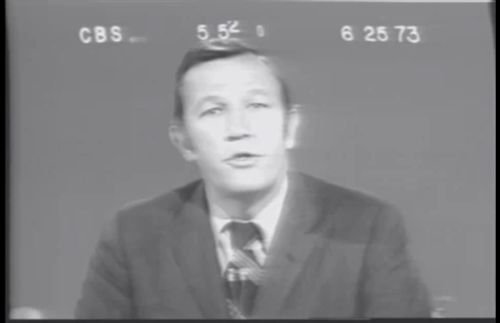Today is the 39th anniversary of the firebombing of the UpStairs Lounge, the New Orleans gay bar, which killed 32 gay men and constituted the single largest mass murder of gays in the history of the United States.
The UpStairs Lounge was located on the second floor of an old building at Chartres Street and Iberville Street, just off Canal Street, near the edge of the French Quarter. In 1973, June 24th fell on a Sunday, and most of the 60 or in attendance were members of New Orleans' Metropolitan Community Church, which held services in the bar. That evening, they sang their unofficial anthem, Brotherhood of Man's "United We Stand," with accompaniment from resident pianist David Gary. They socialized. Just before 8 p.m., a doorbell rang. Someone opened the door, and discovered the Lounge's wooden staircase was ablaze. The UpStairs Lounge was promptly engulfed.
Erik Ose, writing four years ago in the Huffington Post, described the scene:
The emergency exit was not marked, and the windows were boarded up or covered with iron bars. A few survivors managed to make it through, and jumped to the sidewalks, some in flames. Rev. Bill Larson, the local MCC pastor, got stuck halfway and burned to death wedged in a window, his corpse visible throughout the next day to witnesses below.
Bartender Buddy Rasmussen led a group of fifteen to safety through the unmarked back door. One of them was MCC assistant pastor George "Mitch" Mitchell. Then Mitch ran back into the burning building trying to save his partner, Louis Broussard. Their bodies were discovered lying together.
29 lives were lost that night, and another three victims later died of injuries from the fire.
The mainstream media was largely uninterested in showing compassion for gay arson victims:
Initial news coverage omitted mention that the fire had anything to do with gays, despite the fact that a gay church in a gay bar had been torched. What stories did appear used dehumanizing language to paint the scene, with stories in the States-Item, New Orleans' afternoon paper, describing "bodies stacked up like pancakes," and that "in one corner, workers stood knee deep in bodies…the heat had been so intense, many were cooked together." Other reports spoke of "mass charred flesh" and victims who were "literally cooked."
The press ran quotes from one cab driver who said, "I hope the fire burned their dress off," and a local woman who claimed "the Lord had something to do with this." The fire disappeared from headlines after the second day.
A joke made the rounds and was repeated by talk radio hosts asking, "What will they bury the ashes of queers in? Fruit jars." Official statements by police were similarly offensive. Major Henry Morris, chief detective of the New Orleans Police Department, dismissed the importance of the investigation in an interview with the States-Item. Asked about identifying the victims, he said, "We don't even know these papers belonged to the people we found them on. Some thieves hung out there, and you know this was a queer bar."
In the days that followed, other churches refused to allow survivors to hold a memorial service for the victims on their premises. Catholics, Lutherans, and Baptists all said no.
Eventually, a Unitarian congregation agreed to host a memorial service. The UpStairs arsonist was never apprehended.
AFTER THE JUMP, see the only surviving news coverage of the fire.





